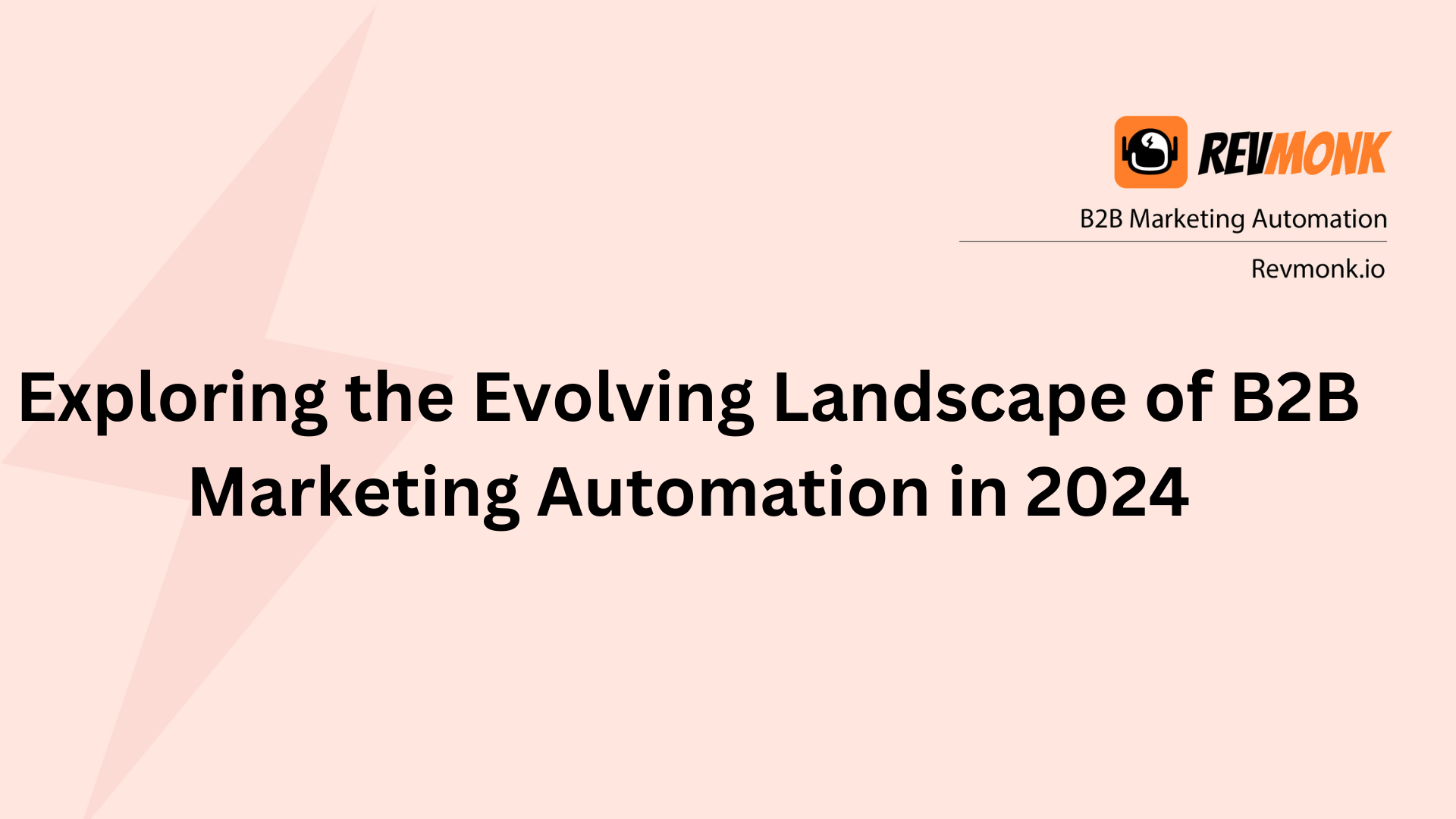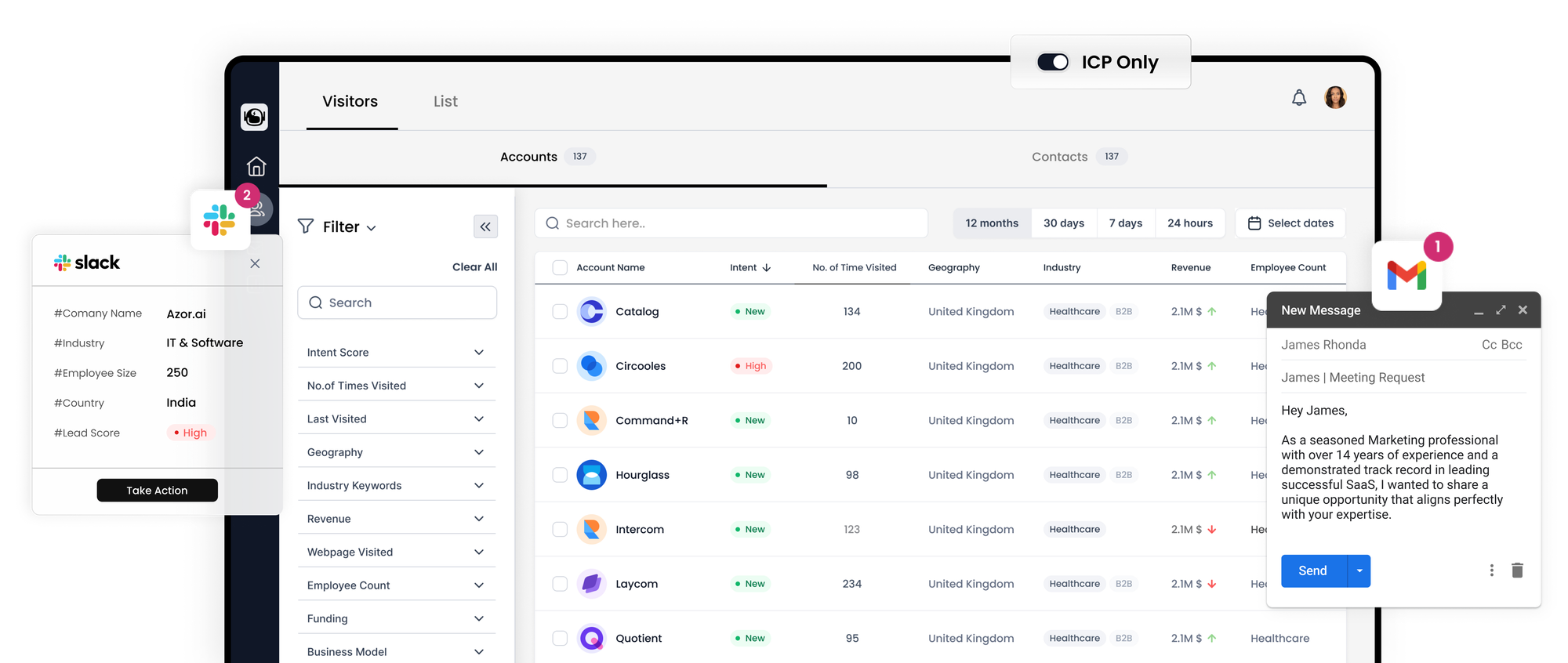Exploring the Evolving Landscape of B2B Marketing Automation in 2024

In our recent analysis on the State of Marketing Automation, we unearthed some intriguing insights. B2B marketers are leveraging automation to enhance various facets of their operations, including streamlining marketing and sales efforts (38%), enhancing the customer experience (34%), and boosting customer engagement (28%). However, only a modest 20% feel they are harnessing the full potential of their automation tools. This highlights the need to delve into the pivotal B2B marketing automation trends that can usher in better adoption and optimized utilization of these indispensable software solutions.

1. Leveraging Behavioral Data for Personalization
- While marketing automation undeniably simplifies tasks like email campaigns and social media management, its true potency lies in elevating results through personalization.
- A staggering 71% of prospects express frustration with impersonal brand experiences, and 80% of consumers exhibit a preference for companies that offer personalized interactions.
- Account-based marketing (ABM) exemplifies this personalization power. It enables companies to target specific prospects with tailored campaigns, resulting in tangible gains. For instance, Computer Sciences Corporation employed marketing automation to craft precise ad campaigns, which led to a substantial 58% surge in page views and progression along the sales cycle.
- The future of marketing automation hinges on its ability to facilitate the creation of personalized experiences by comprehensively tracking prospect and customer behaviors, enabling swift action on insights.
2. Machine Learning and Artificial Intelligence for Enhanced Personalization
- Personalization is a challenge for many, with 63% of digital marketing leaders struggling in this area. Surprisingly, only 17% utilize AI and machine learning to aid the personalization process.
- Embracing machine learning empowers organizations to gather and categorize user data efficiently. This technology offers numerous benefits, including:
- Predicting optimal engagement times based on previous behaviors.
- Identifying micro-segments of customers with shared interests and needs.
- Challenging conventional wisdom through testing and tapping into prescriptive advice.
- The continuous evolution of machine learning and marketing automation will enable marketers to engage with precision, delivering personalized experiences at the right moment to the right audience.
3. Integration of Live Video with Automation
- Live video has gained prominence in B2B content marketing, capitalizing on the rise of social media platforms offering live streaming.
- Key statistics showcase the significance of live video:
- The live streaming industry witnessed a remarkable 99% growth from April 2019 to April 2020.
- A staggering 96% of individuals have viewed explainer videos to learn more about products or services.
- 47% of global live streaming video viewers are consuming more live content compared to a year ago.
- B2B enterprises can experiment with integrating live video into their marketing automation strategies, delivering content that aligns with prospect preferences and garnering valuable insights for refined targeting.
4. Enhanced Channel Integration with Marketing Automation
- Modern customers engage with brands through multiple channels and expect a consistent experience across all touchpoints.
- Multi-channel campaigns that integrate four or more digital channels have proven to outperform single or dual-channel efforts by 300%.
- Marketing automation serves as the linchpin for delivering cohesive content through diverse channels, capturing real-time insights to create tailored experiences.
- This approach ensures that each customer's interaction aligns with their channel preference and position in the buying cycle, fostering a personalized and relevant journey through automation.
5. The Synergy of Content Marketing and Automation
- Marketing automation and content marketing form a dynamic duo that amplifies the effectiveness of content strategies.
- Automation tools provide the means to gain deeper insights into customer preferences and segment them into distinct groups for targeted content creation.
- Data-driven reports enable nimble adjustments to content strategies, ensuring the right content is delivered promptly and often even before the need arises, expediting the sales cycle.
- By thoroughly comprehending buyer groups, marketers can fine-tune strategies and respond promptly to their demands, thereby advancing the sales cycle.
6. Enhancing User Experience through Automation Insights
- Regardless of evolving trends, user experience remains pivotal for product success.
- Marketing automation plays a pivotal role in enhancing user experience by ensuring that prospects encounter content tailored to their needs.
- It leverages data to facilitate personalization, presenting only the most relevant content to customers.
- The integration of automation data empowers marketers to provide an optimal experience, customizing content according to each customer's preferences.
In conclusion, marketing automation continues to be a potent asset in the marketer's toolkit. However, having the tool alone is insufficient; the focus must shift towards implementing best practices and fully harnessing the capabilities of the marketing tech stack. Embracing these emerging B2B marketing automation trends can inspire future strategies, enabling businesses to connect with, engage, and delight customers in innovative ways, ultimately elevating lead management and demand generation.
